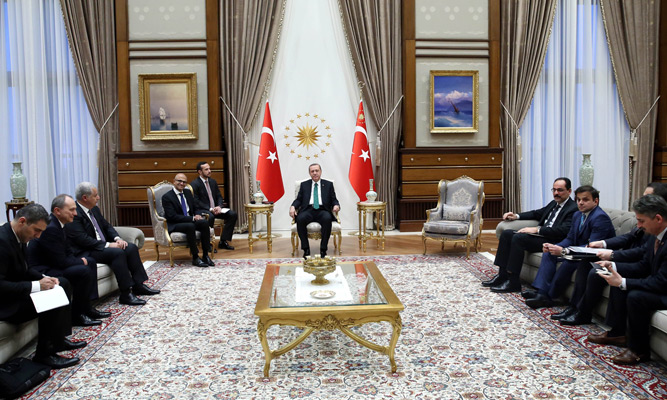Mustafa Kemal Atatürk, born Mustafa Kemal on May 19, 1881, in Thessaloniki, Ottoman Empire (now Greece), was the first President of Turkey and a prominent figure in the Turkish War of Independence. He is regarded as one of the most influential leaders of the 20th century and is revered in Turkey as the “Father of the Turks.”
Mustafa Kemal Atatürk’s Ethnicity and Background:
- Atatürk was born to Ali Rıza Efendi, a customs official, and Zübeyde Hanım, a housewife. His family had Turkic, Albanian, and Macedonian roots.
- Atatürk’s early education took place in Salonica and Monastir Military School. He later attended the Ottoman Military Academy in Istanbul and graduated in 1902 as a staff officer.
- Atatürk served in various military positions throughout the Ottoman Empire, including in Tripoli (Libya), Macedonia, and the Balkans. He gained recognition for his military prowess and strategic thinking.
- During World War I, Atatürk played a crucial role in the Battle of Gallipoli, where he led the Turkish forces against the Allied invasion. His success in defending Turkey against the Allies earned him the title of “Lion of Gallipoli.”
Mustafa Kemal Atatürk’s Achievements and Legacy:
- Atatürk led the Turkish National Movement during the Turkish War of Independence (1919-1922). He established the Grand National Assembly of Turkey in Ankara and served as its president.
- In 1923, after the successful conclusion of the war, Atatürk proclaimed the establishment of the Republic of Turkey, ending the Ottoman Empire. He became the first President of Turkey and embarked on a comprehensive program of modernization and secularization.
- Atatürk implemented sweeping reforms to transform Turkey into a modern, secular nation-state. He abolished the Caliphate, introduced a new civil code based on Swiss law, granted women the right to vote and stand for election, and encouraged the use of the Turkish language in place of Arabic.
- Atatürk’s reforms extended to education, healthcare, and infrastructure development. He established numerous schools and universities, modernized the healthcare system, and initiated ambitious projects to improve transportation and communication networks.
- Atatürk’s legacy is marked by his dedication to progress, nationalism, and secularism. He is credited with transforming Turkey into a modern, democratic state and laying the foundation for its future development.
Some popular facts and trivia about Mustafa Kemal Atatürk:
- Atatürk adopted the surname “Atatürk” (meaning “Father of the Turks”) in 1934, as part of a law requiring all Turkish citizens to adopt surnames.
- He was a prolific writer and poet, and his collected works have been published in several volumes.
- Atatürk was a keen sportsman and enjoyed horse riding, swimming, and wrestling. He was also an accomplished musician and played the violin.
- He was a voracious reader with a vast library. He had a particular interest in history, philosophy, and military strategy.
- Atatürk’s influence extended beyond Turkey. He is revered as a national hero in several countries that were once part of the Ottoman Empire, such as Azerbaijan, Turkmenistan, and Uzbekistan.
Mustafa Kemal Atatürk’s vision and leadership transformed Turkey into a modern, secular republic, earning him the title of “Father of the Turks.” His reforms and legacy continue to shape the identity and direction of Turkey today.
Emblem of Turkey
To enrich your insights into presidential figures worldwide, also explore some prominent first presidents from other countries, such as Tunisia, Trinidad and Tobago and Tonga. Delving into the leadership journeys of these figures can offer valuable perspectives on their historical significance and pivotal roles in shaping global politics.
The official residence and symbol of the Turkey President
10 Iconic Presidents Who Shaped Turkey’s History

Turkey has had several influential and popular presidents throughout its history. Here are 10 of the most noteworthy presidents from Turkey:
- Mustafa Kemal Atatürk (1923-1938) – Mustafa Kemal Atatürk is the founding father of modern Turkey. He led the country to independence, transformed it into a secular republic, and implemented numerous reforms to modernize Turkey.
- İsmet İnönü (1938-1950) – İsmet İnönü succeeded Atatürk as the second President of Turkey. During his presidency, he led the country through World War II and oversaw the transition to a multi-party system.
- Celal Bayar (1950-1961) – Celal Bayar was the third President of Turkey and the first to be elected by the public. He focused on economic development and implemented various agricultural and industrial policies.
- Cevdet Sunay (1961-1966) – Cevdet Sunay served as the fifth President of Turkey. He played a crucial role in stabilizing the country following the military intervention in 1960 and initiated several social reforms.
- Kenan Evren (1982-1989) – Kenan Evren became the seventh President of Turkey after organizing a military coup in 1980. Under his leadership, a new constitution was introduced and significant political and economic changes were implemented.
- Turgut Özal (1989-1993) – Turgut Özal served as the eighth President of Turkey. He played a key role in liberalizing the Turkish economy, promoting democracy, and strengthening the country’s international relations.
- Süleyman Demirel (1993-2000) – Süleyman Demirel was the ninth President of Turkey. He implemented economic and political reforms and played a significant role in integrating Turkey with the European Union.
- Ahmet Necdet Sezer (2000-2007) – Ahmet Necdet Sezer served as the tenth President of Turkey. He focused on upholding the rule of law, ensuring judicial independence, and promoting democracy and human rights.
- Abdullah Gül (2007-2014) – Abdullah Gül became the eleventh President of Turkey and the first to be elected by popular vote. He is known for his efforts to promote Turkey’s role in international relations and strengthen ties with the European Union.
- Recep Tayyip Erdoğan (2014-present) – Recep Tayyip Erdoğan, the current President of Turkey, previously served as the Prime Minister. He has implemented various economic and constitutional reforms, and his leadership has been marked by both popularity and controversy.
These ten presidents have left a lasting impact on Turkey through their leadership, policies, and contributions to the country’s development and modernization.

